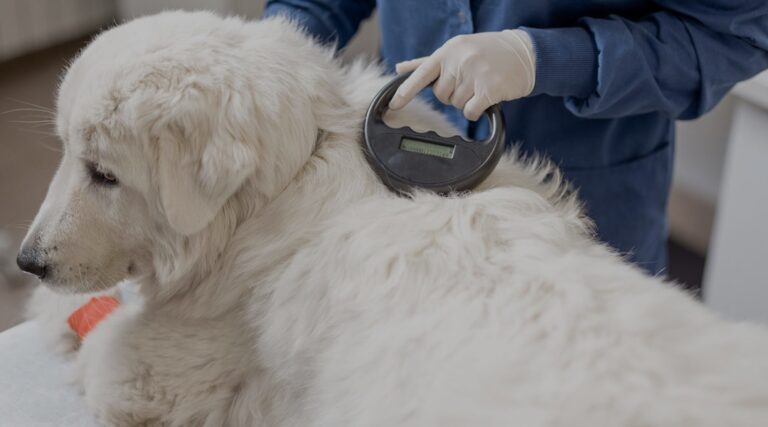Taking care of your dog’s health is important, and one key aspect is their food. Just like humans, some dogs can have allergies to certain foods. These allergies can make your furry friend uncomfortable and affect their well-being. To keep your dog happy and healthy, it’s crucial to manage their food allergies. This guide will give you easy-to-follow tips on how to create a diet that is free from allergens for your beloved pet. Understanding Dog Food Allergies
Dog food allergies are a common concern among pet owners. Just like humans, dogs can develop allergies to certain foods. It is important for dog owners to understand the causes and symptoms of food allergies in order to provide their furry friends with a healthy and allergy-free diet.
Common Symptoms of Dog Food Allergies
Recognizing the symptoms of food allergies in dogs is crucial for early detection and management. Some common symptoms to watch out for include:
- Itchy skin: Dogs with food allergies often experience intense itching, which may lead to excessive scratching, licking, or biting of the affected areas. This can result in hair loss, redness, and skin infections.
- Digestive issues: Food allergies can also manifest as gastrointestinal problems in dogs. Frequent vomiting, diarrhea, flatulence, or a combination of these symptoms may indicate an allergic reaction to certain ingredients in their food.
- Ear infections: Allergies can contribute to the development of ear infections in dogs. If your furry companion frequently shakes their head, scratches their ears, or has a strong odor emanating from their ears, it could be a sign of a food allergy.
- Respiratory problems: In some cases, food allergies can cause respiratory symptoms such as coughing, sneezing, wheezing, or difficulty breathing. These symptoms may be accompanied by nasal discharge or congestion.
It is important to note that these symptoms are not exclusive to food allergies and can also be caused by other health conditions. Consulting with a veterinarian is recommended to accurately diagnose and manage your dog’s allergies.
Identifying Food Allergens in Dog Food
Identifying the specific food allergens in your dog’s diet can be challenging. The most common culprits include beef, dairy, chicken, wheat, soy, and corn. However, dogs can be allergic to any ingredient, including those commonly found in commercial dog foods.
To determine the allergens causing a reaction in your dog, a veterinarian may recommend an elimination diet. This involves removing all potential allergens from your dog’s diet and gradually reintroducing them one by one to observe any allergic reactions. Keeping a detailed food diary can help track the ingredients and identify the specific allergen.
Another option is to opt for limited ingredient diets or hypoallergenic dog foods that are specifically formulated to minimize the risk of triggering allergies. These diets often contain novel protein sources such as venison or duck, and alternative carbohydrate sources like sweet potatoes or peas.
The Role of Protein in Dog Food Allergies
Protein plays a crucial role in dog food allergies. Many food allergies in dogs are caused by an immune system response to specific proteins. The most common protein allergens for dogs are beef, chicken, and dairy.
To manage dog food allergies, it is important to choose dog foods with alternative protein sources that your dog has not been exposed to before. Novel proteins like fish, lamb, or venison can be used in hypoallergenic diets to minimize the risk of triggering an allergic reaction.
Additionally, some dog owners opt for hydrolyzed protein diets, where the proteins are broken down into smaller molecules that are less likely to trigger an immune response. These diets can be beneficial for dogs with severe food allergies or multiple protein sensitivities.
In conclusion, understanding dog food allergies is essential for providing a food allergy-free diet for your furry companion. Recognizing the symptoms, identifying food allergens, and choosing appropriate protein sources can help manage and alleviate the discomfort caused by food allergies in dogs. Consult with your veterinarian for personalized advice and guidance in managing your dog’s specific allergies.
Managing Dog Food Allergies
Elimination Diet for Dogs with Food Allergies
An elimination diet is an effective way to determine the specific food allergens causing discomfort to your dog. By eliminating potential allergens from their diet and gradually reintroducing them, you can pinpoint the specific ingredients causing the allergic reactions. Follow these steps to implement an elimination diet for your canine companion:
- Consult a veterinarian: Before starting an elimination diet, it is essential to consult with a veterinarian to ensure you are on the right track and to rule out any other underlying health issues.
- Choose a novel protein and carbohydrate source: Opt for a novel protein source that your dog has never consumed before, such as duck, venison, or kangaroo. Similarly, select a carbohydrate source that is new to your dog, like sweet potatoes or peas. These novel ingredients reduce the chances of triggering allergic reactions.
- Prepare homemade meals or choose hypoallergenic dog food: You can either prepare homemade meals using the chosen novel protein and carbohydrate sources or opt for commercially available hypoallergenic dog food. Hypoallergenic dog food is specifically formulated to minimize the risk of allergic reactions.
- Strictly eliminate potential allergens: During the elimination phase, eliminate all potential allergens from your dog’s diet. This includes common allergens like beef, chicken, wheat, soy, and dairy. Ensure your dog avoids all treats, table scraps, and flavored medications that might contain allergens.
- Monitor your dog’s symptoms: Observe your dog closely during the elimination phase. Look for improvements in their skin condition, digestive issues, or any other allergy-related symptoms. Keep a journal to record any changes you notice.
- Gradually reintroduce potential allergens: After a few weeks on the elimination diet, you can introduce one ingredient at a time to assess your dog’s reaction. Start with small amounts of the potential allergen and closely monitor your dog for any adverse reactions. If a particular ingredient triggers an allergic response, remove it from their diet immediately.
Choosing Hypoallergenic Dog Food
When managing dog food allergies, choosing the right hypoallergenic dog food is crucial. Here are some factors to consider when selecting hypoallergenic dog food for your furry friend:
- Limited ingredient diet: Look for dog food that follows a limited ingredient diet approach. These formulas contain a minimal number of ingredients, reducing the likelihood of triggering allergic reactions.
- Novel protein sources: Opt for hypoallergenic dog food that incorporates novel protein sources like lamb, fish, or duck. By avoiding commonly used proteins like beef or chicken, you minimize the risk of triggering allergies.
- Grain-free options: Many hypoallergenic dog foods are grain-free as grains can be a common allergen for dogs. Instead, they utilize alternative carbohydrate sources like sweet potatoes, peas, or tapioca.
- Allergy-friendly additives: Check the ingredient list for any potential allergens or artificial additives. Avoid dog food that contains artificial colors, flavors, or preservatives. Natural additives like vitamins and minerals are preferable.
- Consult your veterinarian: Your veterinarian can provide valuable guidance in choosing the right hypoallergenic dog food based on your dog’s specific needs and dietary restrictions. They may recommend specific brands or formulations that align with your dog’s allergies.
Alternative Protein Sources for Allergic Dogs
For dogs with food allergies, finding alternative protein sources is essential to ensure they receive adequate nutrition without triggering allergic reactions. Here are some alternative protein sources that are often well-tolerated by allergic dogs:
- Fish: Fish, such as salmon or whitefish, can be an excellent alternative protein source for dogs with allergies. Rich in omega-3 fatty acids, fish provides essential nutrients while being easily digestible.
- Venison: Venison is a novel protein source for most dogs, making it less likely to cause allergic reactions. It is a lean meat that offers high-quality protein, vitamins, and minerals.
- Rabbit: Rabbit meat is considered hypoallergenic and is an ideal alternative protein source for dogs with food allergies. It is low in fat and highly digestible, making it gentle on sensitive stomachs.
- Duck: Duck is another novel protein source that is less likely to trigger allergies. It is highly digestible and provides essential amino acids, vitamins, and minerals.
- Kangaroo: Kangaroo meat is a unique protein source that is rarely found in standard dog food. It is highly hypoallergenic and rich in iron, zinc, and omega-3 fatty acids.
Remember, when introducing any new protein source, it is essential to monitor your dog for any allergic reactions or adverse effects. If you notice any negative symptoms, discontinue feeding that protein source immediately and consult your veterinarian for further guidance.
Preventing Dog Food Allergies
When it comes to managing dog food allergies, prevention is key. By taking proactive steps, you can help your furry friend avoid the discomfort and health issues associated with food allergies. Here are some tips to prevent dog food allergies:
Gradual Introduction of New Foods
One effective way to prevent dog food allergies is by gradually introducing new foods into your pet’s diet. Sudden changes in diet can cause allergic reactions, so it’s important to introduce new ingredients slowly. Start by adding small amounts of the new food to your dog’s current diet and monitor for any signs of allergies. If your dog shows any adverse reactions, such as itching, vomiting, or diarrhea, consult with your veterinarian before continuing.
Avoiding Common Food Allergens
Certain ingredients are more likely to trigger food allergies in dogs. By avoiding these common food allergens, you can significantly reduce the risk of allergic reactions. Some common allergens to watch out for include:
- Wheat and grains
- Soy
- Corn
- Dairy products
- Beef
- Chicken
- Eggs
- Fish
When selecting dog food or treats, carefully read the ingredient labels to ensure they do not contain any allergens that your dog may be sensitive to. Opt for hypoallergenic or limited ingredient diets that are specifically formulated for dogs with food allergies.
Supplements for a Healthy Immune System
A strong immune system plays a crucial role in preventing dog food allergies. Providing your dog with the right supplements can help boost their immune system and reduce the risk of allergic reactions. Consult with your veterinarian to determine which supplements are suitable for your dog. Some commonly recommended supplements for a healthy immune system include:
- Omega-3 fatty acids: These can help reduce inflammation and support overall immune health. Fish oil supplements are a great source of omega-3 fatty acids.
- Probiotics: These beneficial bacteria support a healthy gut and immune system. Look for probiotic supplements specifically formulated for dogs.
- Antioxidants: Antioxidants such as vitamins C and E can help strengthen the immune system. Consider incorporating foods rich in antioxidants into your dog’s diet or ask your vet about antioxidant supplements.
By following these preventive measures, you can help your furry friend enjoy a food allergy-free diet and live a happy, healthy life.
Managing dog food allergies can be a challenging task, but with the right approach and a food allergy-free diet, it is possible to provide your furry friend with the nutrition they need while avoiding any discomfort or adverse reactions. By following the tips mentioned in this article, such as identifying allergens, reading labels, and considering alternative protein sources, you can ensure that your dog’s diet is free from allergens and suitable for their specific needs. Remember to consult with a veterinarian for professional advice and guidance throughout the process. With proper care and attention, you can help your dog lead a healthy and allergy-free life.







